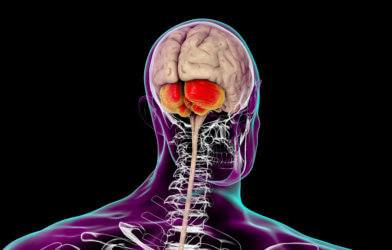Title: “Groundbreaking Discovery: UTEP Researchers Turn Coffee Grounds into Potential Weapon Against Neurodegenerative Diseases”
By [Your Name]
EL PASO, Texas (Nov. 21, 2023) — In a surprising twist, used coffee grounds may hold the key to combating neurodegenerative diseases, including Alzheimer’s, Parkinson’s, and Huntington’s, according to researchers from The University of Texas at El Paso (UTEP). Led by doctoral student Jyotish Kumar and overseen by Professor Mahesh Narayan, the team has developed an economical and sustainable therapy using caffeic-acid based Carbon Quantum Dots (CACQDs) derived from discarded coffee grounds.
Kumar explains the potential impact of their findings: “Caffeic-acid based Carbon Quantum Dots have the potential to be transformative in the treatment of neurodegenerative disorders. Our aim is to find a cure by addressing the atomic and molecular underpinnings that drive these conditions.”
Neurodegenerative diseases, characterized by the loss of neurons, hinder basic functions such as movement, speech, and cognitive abilities. Current treatments manage symptoms but fall short of resolving the diseases. Kumar and his team believe their therapy could offer a breakthrough cure by addressing the root causes.
The team found that CACQDs were neuroprotective across various models, effectively removing free radicals and inhibiting the aggregation of amyloid protein fragments, which are associated with these disorders. Narayan emphasizes the importance of addressing disorders in their early stages: “It is critical to address these disorders before they reach the clinical stage. Any current treatments for advanced symptoms are beyond the means of most people.”
Caffeic acid, a key component of CACQDs, belongs to a family of compounds known for their antioxidant properties. Its unique ability to penetrate the blood-brain barrier allows it to exert effects on brain cells. The environmentally friendly process of extracting CACQDs from coffee grounds, termed “green chemistry,” involves cooking samples at 200 degrees for four hours.
Narayan highlights the economic and sustainable aspects of their approach: “The sheer abundance of coffee grounds makes the process both economical and sustainable.” The researchers aim to secure additional funding for further testing, acknowledging the journey ahead before reaching a potential medication that could prevent a majority of neurodegenerative disorders caused by non-genetic factors.
The research, supported by a National Institutes of Health grant, involved numerous UTEP students, showcasing the collaborative effort in the pursuit of a groundbreaking solution. Narayan and Kumar recognize the challenges ahead but are optimistic about the potential impact on preventing these debilitating diseases.
About The University of Texas at El Paso: The University of Texas at El Paso stands as America’s leading Hispanic-serving university, offering 171 bachelor’s, master’s, and doctoral degree programs. Located at the convergence of three states and two countries along the Rio Grande, UTEP is recognized for its commitment to diversity and open-access research.











-392x250.jpg)

